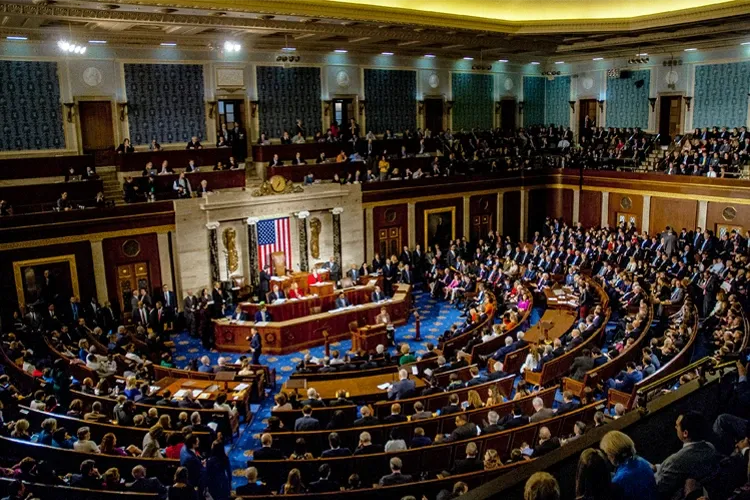If you were reading national headlines last week, you would have thought the world was ending over the 15 rounds of voting it took for Kevin McCarthy to become Speaker of the House.
Mainstream media, the Democrats, and even some “conservative” talking heads had a meltdown over the 21 conservative House members who held out on the speaker vote.
But thanks to the efforts of these conservatives, a semblance of representative government was returned to Congress with a package of rules changes that allow for greater debate and transparency.
Two major rule changes that will lead to greater transparency in the legislative process are Rep. Thomas Massie’s (R-KY) push to require a stronger 72-hour window to read bills before voting on them and an open amendment process.
But thanks to the efforts of these conservatives, a semblance of representative government was returned to Congress with a package of rules changes that allow for greater debate and transparency.
While it’s unlikely that most members will actually take the time to read the bills, requiring bills to sit for 72 hours will allow watchdogs and the media to have time to review legislation and expose any dirty dealings to sunlight. This is excellent news for conservatives who ultimately want to slow down the legislative process, as the longer the process is drawn out, the better chance we have at stopping bad legislation from becoming law.
There will also be a single subject rule for legislation which will limit the number of earmarks that can be added to legislation, which is often used to buy votes on controversial legislation.
The new rules also put an end to the ridiculous proxy voting system that allowed members to vote while not being present, all in the name of Covid, but was more regularly abused by members who were traveling for leisure or fundraisers.
“It is much more important to kill bad bills than to pass good ones.” — Calvin Coolidge
Conservatives also won three seats on the powerful Rules Committee, which sets the agenda for the House floor. This gives incredible new opportunity to potentially block bills from coming to the floor. As Calvin Coolidge once stated, “It is much more important to kill bad bills than to pass good ones.” And in the era of divided government where most “bipartisan” bills spend recklessly and grow government, having the ability to kill bills before they even get to the floor is huge.
The House of Representatives was designed by our Founders to be a deliberative body, but sadly many members of Congress are perfectly happy showing up to do the bare minimum to get paid and wear the elite Congressional pin before flying back home.
These rules changes will make your members of Congress work harder and will draw out the legislative process, so expect to hear more squawking from them about how hard they are working.
But that’s the point. And hopefully in the process some work can be done to right the ship before our nation completely goes over the fiscal cliff.



